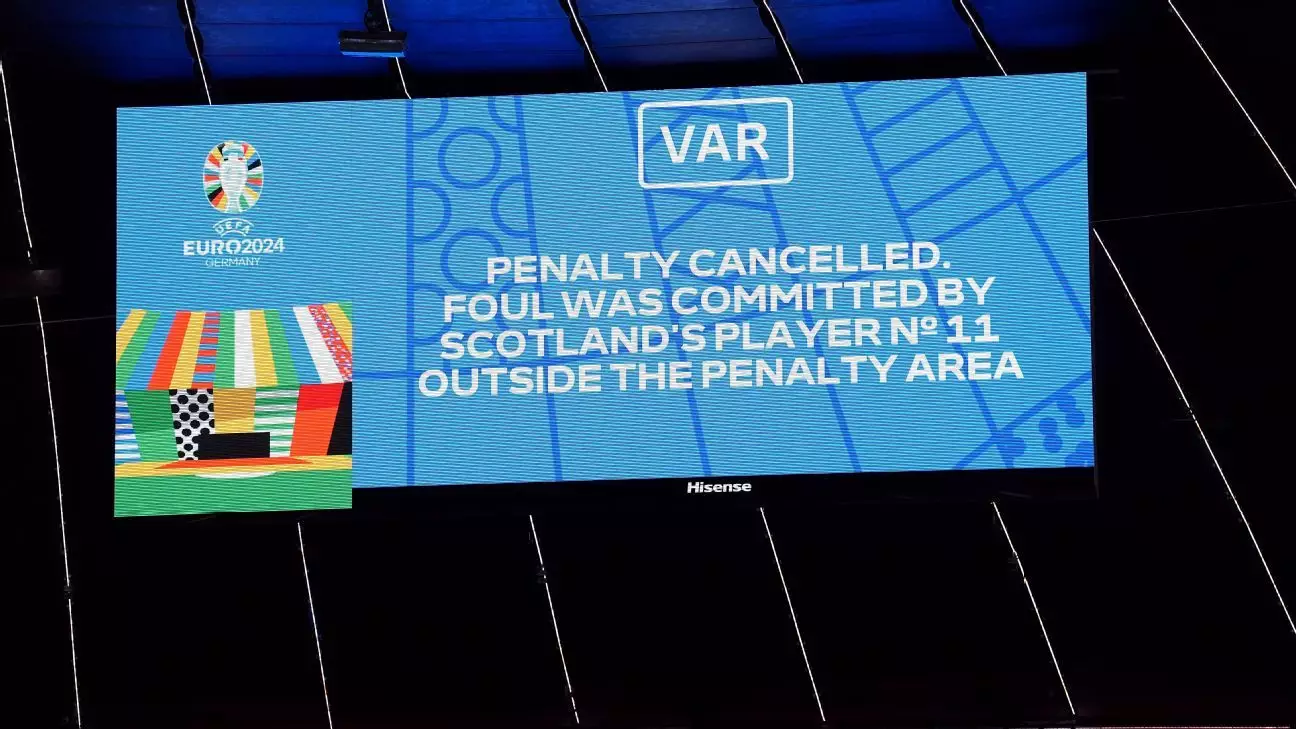In a significant move to refine the decision-making process in football, the International Football Association Board (IFAB) has approved expanded trials for Football Video Support (FVS), a novel alternative to the traditional video assistant referee (VAR) system. The introduction of FVS marks a pivotal shift that empowers coaches to intervene in officiating decisions during matches. By allowing coaches to challenge calls, this initiative aims to enhance the fairness and accuracy of game officiating, particularly in leagues lacking the financial resources to implement conventional VAR systems.
IFAB’s decision comes in the wake of criticism surrounding VAR’s implementation, particularly regarding its complexity and the often opaque nature of decision-making. The FVS system was first tested during the U20 and U17 FIFA Women’s World Cups and has shown promise as a more accessible and straightforward solution. Pierluigi Collina, head of FIFA’s referees’ committee, has emphasized that the focus must remain on clear and practical applications of FVS, especially in settings where full-fledged VAR is not feasible.
The initiative reflects a growing recognition that smaller leagues and competitions often struggle with the demanding requirements of VAR, which typically necessitates multiple high-definition cameras and trained video assistant referees. Thus, FVS presents a more adaptable framework that can operate effectively with a limited technical setup.
Under the FVS guidelines, coaches are afforded the opportunity to challenge decisions made by referees, a notable departure from the previous structure where only designated officials could initiate reviews. In each match, coaches can make up to two challenges, a feature designed to restore some control to the teams amidst questionable officiating moments. After a challenge is made, referees will consult a replay on the sideline, with the video cues provided by an operator rather than a full team of VAR officials, fundamentally altering the dynamics of review processes.
However, it’s crucial to recognize the inherent limitations of FVS. Due to the reduced number of cameras—ideally four to five—the system cannot capture the comprehensive angles that VAR affords. This constraint means that the focal point of decision-making remains with the on-field referees, who must still rely on their judgment and discretion. Clear fouls or offsides can only be corrected when evident, suggesting that the role of the match referee remains integral.
Should FVS be effectively integrated into smaller leagues, we might witness a paradigm shift in how matches are officiated. By allowing coaches to challenge decisions, the system introduces an additional layer of strategic elements into the game. Coaches will need to exercise tactical discretion when deploying their challenges—using them not just to rectify obvious mistakes but also to influence the flow and momentum of the match.
Moreover, FVS’s adoption could alleviate some pressure on referees, allowing them to focus on the live dynamics of the game while still having the safety net of video support available to rectify any major oversights. This could potentially lead to a more harmonious relationship between match officials and teams, where accountability is shared rather than one-sided.
The move towards broader trials of FVS is not without its challenges. IFAB’s Annual General Meeting is scheduled for March 1, when further decisions on these trials, alongside potential amendments to the Laws of the Game, will be finalized. By then, IFAB hopes to gather significant feedback from the initial trials to shape the method’s future and ensure that it meets the evolving needs of the game globally.
As FVS undergoes its testing phases, the insights gleaned from its various implementations will be critical in determining whether this system could eventually become a standard feature in football, especially for leagues struggling with the financial burdens associated with traditional VAR technology. The opportunity for coaches to influence decision-making may very well represent the dawn of a new era in football officiating, contributing to a more dynamic and fair playing environment.


Leave a Reply